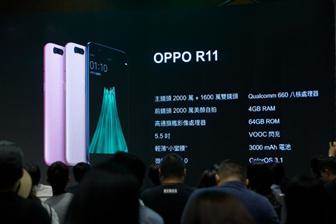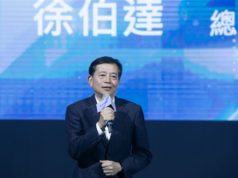
- Register
- Login
36°C
- Article
- . (0)
- Related content
- Company info
China and Taiwan smartphone vendors are showing polarized sales performances in China market, with smaller vendors such as LeEco and Asustek Computer gradually losing ground and leading ones such as Huawei, Xiaomi, Vivo and Oppo steadily trending upward, according to market sources.
The sources said that after failing to honor installment payments to its supply chain partners, China’s LeEco has suffered from a spate of negative news including alleged sales suspension of specific smartphone models at LeMall and many contracted suppliers rushing to seek return of debts, significantly undermining its smartphone sales in China.
Sales of Asus-branded smartphones in China also failed to fare as well as as expected in the first half of the year amid keen competition from Chinese counterparts, with the Taiwan-based vendor turning conservative in placing orders with supply chain partners. This, in turn, has significantly impacted its manufacturing partners including Arima Communications.
In earlier years when Asustek was aggressively developing overseas markets, Arima set up a manufacturing plant in Indonesia to handle contract production of Asus Zenfone series. But now the shrinkage in production orders from Asus has forced Arima to seek orders from other vendors such as China’s ZTE and South Korea’s LG Electronics, so as to maintain a viable capacity utilization rate.
Huawei, Xiao, Vivo, Oppo in leading group
In contrast, leading brands such s Huawei, Xiaomi, Vivo and Oppo are aggressively moving to expand their sales to consolidate their position in the leading group. Among them, Vivo and Oppo were the two major winners in the China smartphone market in 2016, and this year they have continued to spend heavily on promoting sales via intensive physical sales outlets, and through placement marketing on TV channels as well as celebrity endorsements, repeatedly creating new sales records.
Oppo, for instance, has enjoyed shinning sales of its latest star model R11 since it officially hit the China market on July 1, as a result of the firm’s even higher marketing budget than last year’s and intensive promotion campaigns. Oppo has kept increasing orders with its contract producers to meet market demands, a move that has squeezed the production schedules for other brands. The company expects sales of R11 alone to break the level of 20 million units.
To counter, Huawei is also actively strengthening its retail deployments by establishing more physical stores in cities around China.
Likewise, Xiaomi is also gearing up to build retail channels, planning to set up 2,000 stores within three years in China and overseas markets. Xiaomi CEO Lei Jun pointed that that the brand sold 23.16 million units in the second quarter of 2017, a new quarterly high and representing a whopping growth of 70% on quarter. This indicates Xiaomi is back on the growth track after a 2-year hiatus, inspiring the company to set a challenging sales goal of 100 million units for 2018, according to Lei.

Oppo’s R11 has been selling well since it hit the China market on July 1.
Photo: Michael Lee, Digitimes, July 2017
-
IC vendors ramping up solutions for voice assistants
Bits + chips | 32min ago
-
FD-SOI a promising technology: Q&A with Globalfoundries CEO Sanjay Jha
Bits + chips | 37min ago
-
TSMC expanding number of equipment suppliers for 7nm
Bits + chips | Jul 18, 22:59
-
IC Insights predicts record annual ASP growth rates for DRAM, NAND flash
Bits + chips | Jul 18, 22:22
-
Digitimes Research: Dual-lens smartphone penetration may rise to 50% in 2019
IT + CE | Jul 18, 22:12
-
Installed 8-inch fab capacity to rise through 2020, says SEMI
Bits + chips | Jul 18, 22:06
-
Taiwan market: Asustek launches baby physiological monitor
Before Going to Press | Jul 18, 21:52
-
China market: Taiwan makers showcase automation equipment at Kunshan exhibition
Before Going to Press | Jul 18, 21:49
-
Chipbond, ChipMOS seeing robust gold bumping demand
Before Going to Press | Jul 18, 21:42
-
Zhonghuan Semiconductor, GCL-Poly Energy to set up joint venture solar-grade monocrystalline silicon wafer factory
Before Going to Press | Jul 18, 21:40
-
Portwell buys back 2.13% stake
Before Going to Press | Jul 18, 21:36
-
Unigroup Guoxin scraps plan to acquire Yangtze Memory
Before Going to Press | Jul 18, 21:35
-
Chip demand for data centers to boom in China
Before Going to Press | Jul 18, 21:34
-
Taiwan market: China smartphone brands expand presence
Before Going to Press | Jul 18, 21:34
-
Upcoming Meizu Pro 7 series reportedly to utilize MediaTek chips
Before Going to Press | Jul 18, 21:33



- Wireless broadband developments in Southeast Asia markets
As of 2013, the 10 ASEAN nations had a total of over 700 million mobile subscriptions, with the CAGR from 2003-2013 reaching 24%. This Digitimes…









